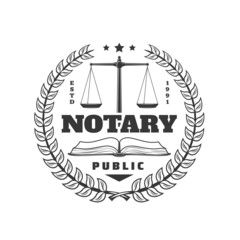
A Power of Attorney (POA) is a crucial legal document that grants someone the authority to act on your behalf in legal, financial, or medical matters. Choosing the right person for this role is essential to protect your interests and avoid potential misuse. In this guide, we will explore the key factors in selecting a trustworthy POA, the responsibilities involved, and how to ensure your legal documents are properly notarized in Nepal.
Understanding the Role of a Power of Attorney
A Power of Attorney allows an individual, known as the principal, to delegate decision-making authority to a trusted agent or attorney-in-fact. This authority can be broad or limited to specific actions such as handling real estate transactions, business dealings, or medical decisions.
Types of POA in Nepal include:
- General Power of Attorney: Grants broad powers over financial and legal matters.
- Special Power of Attorney: Limits authority to specific transactions or responsibilities.
- Durable Power of Attorney: Remains valid even if the principal becomes incapacitated.
- Medical Power of Attorney: Assigns someone to make healthcare decisions when the principal is unable to do so.
Who Should You Trust with Your Power of Attorney?
Choosing the right person to act as your attorney-in-fact is critical. Consider the following qualities:
1. Trustworthiness and Integrity
The chosen agent must be reliable and act in your best interests at all times. Family members, close friends, or professional advisors with a history of ethical behavior are ideal candidates.
2. Financial and Legal Competency
The individual should have a good understanding of financial and legal matters, especially if the POA involves managing assets or businesses.
3. Availability and Willingness
Ensure the person is willing to take on the responsibilities and is available to act when needed.
4. Familiarity with Nepalese Laws and Procedures
Nepal has specific legal requirements for notarization and certification of POA documents (Notary Sewa). Your agent should be aware of these processes or seek legal advice.
5. No Conflicts of Interest
The chosen person should not have personal or financial conflicts that could compromise their decision-making.
Legal and Notarization Requirements in Nepal
In Nepal, a POA document must be properly notarized to be legally recognized. The process involves:
- Drafting the POA document following Nepalese legal standards.
- Verification by a notary public to confirm authenticity (Learn more).
- Registration at the appropriate government office, depending on the type of POA.
For business and financial POAs, additional certifications such as an Apostille or MOFA attestation might be required (More on Apostille).
Risks of Choosing the Wrong Person
Selecting an untrustworthy agent can lead to serious legal and financial consequences, including:
- Misuse of assets
- Unauthorized transactions
- Fraudulent activities
- Legal disputes and court cases (Read about court document notarization)
How to Protect Your Interests
1. Consult a Legal Expert
Before granting a POA, seek advice from a qualified legal professional to ensure compliance with Nepalese laws. Legal experts can help draft a POA document tailored to your needs, preventing any loopholes that could be exploited.
2. Specify the Scope of Authority
Clearly define the powers being granted to prevent misuse. Be specific about the actions the agent can take, including limitations on financial transactions, property dealings, or medical decisions.
3. Include a Revocation Clause
Outline how the POA can be revoked in case of misuse or if circumstances change. Having a clear revocation process ensures you can terminate the POA legally and without complications (Learn more).
4. Use Multiple Agents
For added security, appoint co-agents who must act jointly on major decisions. This ensures that no single person has unchecked control over your affairs, reducing the risk of fraudulent activity.
5. Regularly Review and Update
Ensure that your POA remains valid and aligned with your current needs. Life circumstances change, and it is essential to update your POA periodically to reflect new financial, health, or personal situations.
6. Use a Reliable Notary Service
Proper notarization ensures the legal validity of your POA document. Engaging a trusted notary service in Nepal guarantees that all legal formalities are followed, preventing future disputes. Visit Notary Sewa for professional notarization services.
Conclusion
Choosing a trustworthy Power of Attorney is a vital decision that impacts your financial and legal well-being. By selecting a responsible and competent individual, ensuring proper notarization, and understanding Nepalese legal requirements, you can safeguard your interests. For professional notarization services in Nepal, visit Notary Sewa.
For further reading, explore related topics:
